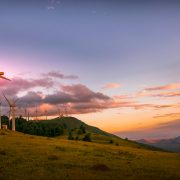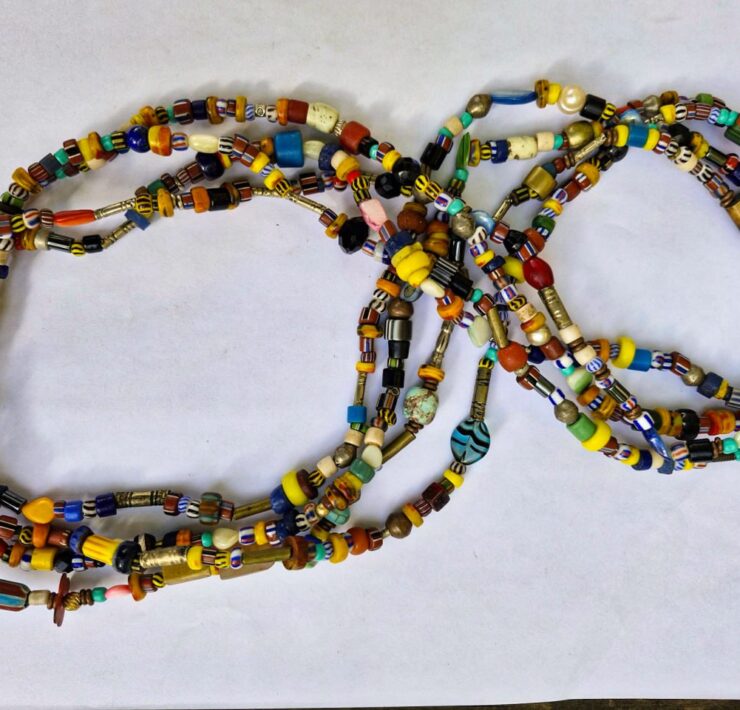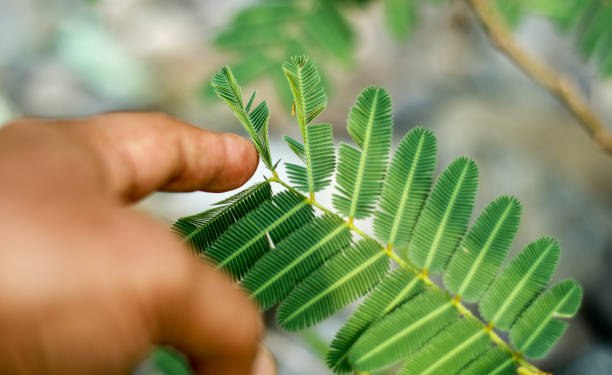
Samuel Phillips is a writer, graphic designer, photographer, songwriter, singer…
Read Next
Lessons from a Forest Garden
Sometime within the year, I shared how my family and I moved to a forest house on the coast of Kenya. The eco-banda where we stayed was part of a thirty-acre indigenous forest with untouched trees, and rich biodiversity, and just a stone’s throw from the ocean beach. The forest is a conservation project under the protection of the Digo Community of Kwale County on the coast of Kenya.
Moving to the forest, we instantly fell in love with the environment; the clean air, the lush trees, and the community that gave us such a great welcome.
The warm-cold wind from the ocean constantly creates this music that sways the trees in this beautiful dance symphony. It was a lovely environment where you enjoy nature and rich biodiversity.
There was no shortage of snakes (one even got into our bedroom and I also had to kill a few who got too close for comfort), centipedes, all manner of insects, hornbills, monkeys, baboons, monitor lizards, and a lot of other animals.
Unsurprisingly, the forest is their home, and they are free to roam.
Because we loved the idea of staying off-grid in a forest or somewhere secluded from noise, it was exciting getting to live in the area. Also, I took my morning walk on the beach which is just five minutes away from the house.
How we got there
For a while now, my wife and I have been advocating for the safety of Africa’s indigenous seeds and plant varieties, especially in the face of GMO invasion of indigenous farming practices in Africa. One of the many discussions we constantly have with our audiences (magazine and YouTube) is for people to plant, eat, and save organic indigenous seeds.
So, moving to this indigenous forest was very exciting. We had room to plant crops and also save seeds. Well, that was the plan.
I cleared a small place just next to the building and planted some melons, amaranth, okra, bananas, passion fruits, and a few other crops.
The melons did not do well because the monkeys and baboons “made footballs out of them”. Those wild guys just plucked the young melons, bit a piece from the corner, and scattered the rest everywhere. For me, each time they did that, it always looked like an act of rebellion against us planting in their domain. They wouldn’t eat the melons; they would just destroy them and leave.
However, it was so beautiful watching the other plants grow. I loved to watch my two-year-old son walk barefoot in the garden.
It was beautiful.
Our target was to harvest the crops and get seeds for storage, especially the okra seeds. So, we knew we were not going to be eating whatever we harvested from the garden. Then the monkeys and baboons invaded…again.
Since we lived in the forest, we were very much aware that the wild animals around us, especially the monkeys and baboons, would be interested in what we planted. We just hoped they wouldn’t finish everything and at least allow some to grow to harvest time.
Some of the crops did grow very well.
The okra was amazing, beautiful, and very eatable each time I looked at it. And because the okra seeds we planted were sourced from Nigeria (brought by a brother), it was such an amazing sight to see them grow very well in Kenya. One of the okra varieties came out with this nice purple color. Then disaster happened, and it happened so fast.
On this particular morning, I woke up with the feeling that I needed to harvest the okra, but I told myself I would do it later in the day. At this point, the okra was mature but I wanted them to dry on their stalk. It’s easier to harvest and store the seeds that way.
We drove out to get some supplies in town. We got back after about one hour or so. But lo and behold, even before getting to the garden I could see that all the okra had disappeared. I could not believe my eyes at first.
I went to the garden and my fears were confirmed. The wild boys had eaten every single okra that I was keeping for harvest. I was very annoyed with the animals but at the same time, I was pissed with myself for not listening to the prompting to harvest the okra before leaving for supply runs.
It was a good lesson for me and even though I did not get to harvest and store the okra seeds as I had wished, I did learn a few things from that experience.
Life Lessons
Nature always wins: I remember telling one of our friends who works in the forest conservancy about what happened. He just laughed it off and said “This forest is the home of the animals, we are the ones that are visitors here,” or something like that. Clearly, his words did not help, but they were the truth all the same.
No matter what humans do, and no matter how smart we think we are, nature will always do what nature does and nature will always win.
For example, what if the issue of Climate Change is just nature giving the middle finger to humans for the wayward ways we have dealt with nature?
Something to think about.
Tomorrow is not guaranteed for anyone: What would have happened if I had harvested the matured okra when I had the hunch to do so? I would have saved the seeds and multiplied them in another planting season.
But that did not happen; not because there was no seed to harvest, but because I did not listen to harvest them within the time frame that they were available for me to harvest them.
But what does that mean?
The opportunity of a lifetime must be used within the lifetime of the opportunity.
Applying this particular lesson goes beyond gardening and invading monkeys or baboons. It applies to every area of our lives and we need to pay attention to it.
We cannot put off until tomorrow what needs to be done today. Why? Tomorrow is not guaranteed for anyone and none of us know what will happen in the next hour. Nobody does.
So, we cannot live life thinking that we are the best thing that happened to the world since mango juice. No, we are not. We are part of a living, breathing organism called Earth. And it’s incumbent on us to live right even as we display the beauty of our lives for all humanity to see.
Life is a beautiful piece of art: Imagine living in that dark, quiet, and sometimes cold forest with the sound of animals and insects coming from all directions. By the way, there are no other houses within the forest. Also, imagine if the forest trees could call a meeting of their “council of elders” and the topic of discussion is “What should we do with these humans invading our space”? Or if the baboons and monkeys made the grand plan that they would strike the garden only when the okra was fully matured? And you know baboons are very intelligent, aggressive, and vicious.
It’s interesting, right?
But that’s the beauty and the art called life or nature. Everything is interwoven and everything is connected even if we do not see or appreciate the connection.
There are days I would come out of the house as early as 3 am to pray and also just to listen to the sound of the forest. The constant buzzing of insects and the occasional sound of monkeys and birds in the trees make the entire dark environment surreal and pleasant.
It gets even sweeter when it rains, except that sometimes the smell from the forest when the rains fall heavy is horrible. When such heavy rains fall, the forest emits a very strong smell like it’s pooping or farting.
But that’s all part of the art called LIFE and it’s beautiful.
Follow the leading of the inner voice: That voice on the inside or that gut feeling on the inside that tries to speak to us is nothing but the voice of God or the Universal Mind prompting us to pay attention to something. Unwanted incidents happen when people ignore that voice. Also, lots of good and amazing things have happened to people when they listen to that still small voice.
Thank goodness, in our case, it was just okra seeds and melons that were lost and not something more valuable.
In conclusion, life is dynamic and the dynamism of life requires that we pay attention to things around us, things within us, and things in nature. For all things are connected and all things are one in WHOLENESS.
Subscribe now for updates from Msingi Afrika Magazine!
Receive notifications about new issues, products and offers.
What's Your Reaction?
 PIN IT
PIN ITSamuel Phillips is a writer, graphic designer, photographer, songwriter, singer and a lover of God. As an Afrikan content creator, he is passionate about creating a better image and positive narrative about Afrika and Afrikans. He is a true Afrikan who believes that the true potential of Afrika and Afrikans can manifest through God and accurate collaborations between Afrikans. Afrika is the land of kings, emperors, original wisdom, ancient civilizations, great men and women and not some road-side-aid-begging poor third world continent that the world finds joy in undermining.





















